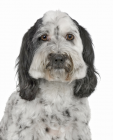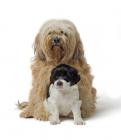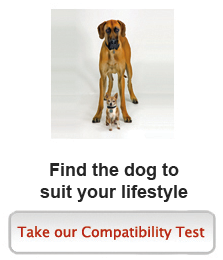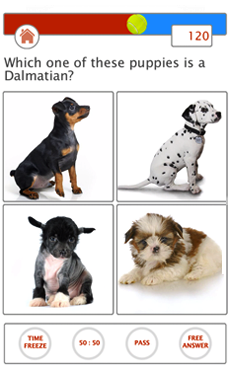Tibetan Terrier
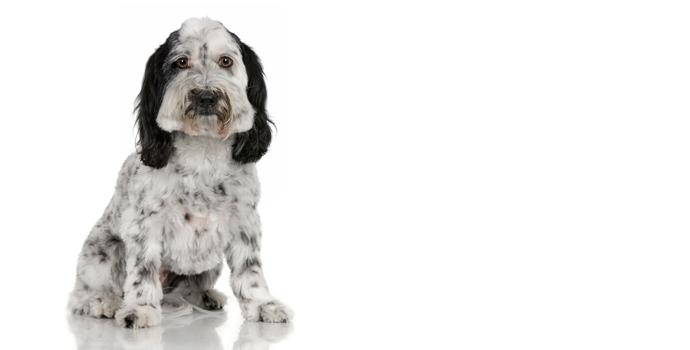
In my own words
It is said that my kind are considered to be very lucky. Isn’t that cool! I’m like your very own good luck charm. Not only that but I’ll protect you and your home too because that is what I was bred for, you see. We used to look after livestock in the mountains although I don’t do that so much anymore. Oh, did you hear that? Was that someone at the dog? I’ll check it out for you, don’t worry!
Can we go for walkies yet? I love walkies, don’t you? I’m so excited, I’ll go get my lead! I don’t mind that it’s snowing, look at my feet, I’ve got built in snow shoes! And see this coat? It protects me from the cold weather so what are you waiting for? Let’s go walkies!
My ideal owner(s)
Families with older children
Experienced dog handlers
Active singles
What they say about me
Loyal
Protective
Brave
Sensitive
Affectionate
Please read on, to find out more about me, and whether I will be someone you can be happy with for the next 15 years, or even longer!
Is this Tibetan Terrier for you?
Test your knowledge about the Tibetan Terrier
Information essential about the Tibetan Terrier
Kennel Club Group:
Despite the name, Tibetan Terriers are not actually members of the Terrier group at all. Their history is ambiguous and in their native lands they are called the Tsang Apso.
Category:
Utility - The Tibetan Terrier has no terrier characteristics and is a member of the Utility group. They were originally bred to protect the camps of nomads in the mountainous regions of Tibet and today are used for companions and seen in the show ring.
Size:
Small: Weight 22 – 29 lb (10 – 13 kg)
Height 14 – 16” (36 – 41 cm)
Popularity:
Breed History:
The Tibetan Terrier is often called the ‘Holy Dog of Tibet’ and was bred as a utility dog and companion for monks in the high mountains more than 2,000 years ago. They were highly valued companions to monks and families and were treated like children in the family, living inside the house rather than outside like many dogs. They were bred to be tough and hardy, sure footed and reliable to ensure they could take care of livestock effectively on harsh terrain.
It is said that anyone who owned a Tibetan Terrier would never sell their dog as they were considered very good luck and if sold, the owner was selling their ‘luck’ with it. They were so prized that mistreatment of them was frowned upon and families could be socially ostracised. Breeding of this breed was highly regulated and while they were never sold, they could be given as gifts. The Tibetan Terrier first came to Europe with an English doctor in the 19th century after he was given a dog in return for saving a monk’s life.
Technically not “terriers,” they were called so because of their size. Today, Tibetan Terriers are adored around the world as loving companions, fierce protectors and winning competitors.
Character:
This breed is loyal, intelligent, brave and extremely affectionate and sensitive. They love family life but prefer older children rather than young children. Providing it has been well socialised from an early age it can live quite happily with other pets and is relatively easy to train. If it does not receive adequate exercise and stimulation, it can become quite boisterous and this can give way to undesirable behaviours, especially barking
Temperament:
The Tibetan Terrier makes a lively, good natured and loyal companion. They have an engaging personality and strong guard dog abilities. They love their immediate family when respect and loyalty has been earned but is somewhat cautious with strangers.
Conformation:
The overall appearance of this dog is one of agile strength and beauty. The head is solid and is in good proportion to the body. The eyes are large, set well apart and are dark brown in colour. The ears are v shaped, pendant and lie quite close to the head. The muzzle is strong with a small beard on the lower jaw. The body is square shaped, compact and muscular with the tail is set high, carried curled over the back. The Tibetan Terrier’s most distinctive feature is its coat. The outer coat is long, flat and thick. The undercoat is thick, warm and woolly. This weather resistant undercoat keeps the dog warm even in freezing conditions – a perfect adaptation for life in the high mountains. The hair is profuse even on the head where it falls over the eyes and this dog notably has extra long eyelashes that keep the hair out of its eyes. Another unique feature to this dog is its feet. The Tibetan Terrier has broad, flat, feet which enabled the dog to herd the flocks over snow covered mountains, acting in very much the same way as snow shoes.
Coat:
The double coat is weather resistant with the outer coat being long, flat and fine and the undercoat is thick, warm and woolly. A straight or waved coat is acceptable but never curly. Tibetan Terriers are easily distinguished by the long drapes of hair that hang in their faces in addition to their well-plumed tails.
Colour:
The coat comes in a wide variety of colours: white, golden, cream, grey or smoke, black, parti-colour and tricolour. They also come in chocolate or liver but these colours are not acceptable in the show ring.
Training:
This breed is very easy to train provided the training is done in a calm, equable manner. They can be strong-willed and stubborn and respond best to firm and kind handling.
Care:
This breed does not shed its coat but regular grooming is required whether the coat is left long or clipped. This is particularly important during the development of the coat. Excess hair should be removed from the ears and between the pads of the feet. The areas around the ears and anus should be kept clean and free from excess hair to prevent infection. The eye area too should be checked on a regular basis.
Health:
The lifespan of a healthy individual is up to 15 years. If you buy from a reputable, responsible breeder, health problems should not occur. This bred is hardy and robust and does not suffer from many serious complaints. However, puppies should be purchased from parents who have been both hip-scored and eye tested as PRA, lens luxation and hip dysplasia are potential problems. They can also suffer skin allergies and be allergic to fleas so they need a frequent and consistent programme of flea, tick and parasite treatment.
Exercise:
This breed needs plenty of exercise and stimulation and benefits from at least two good walks a day. They do very well at canine sports such as flyball and agility to help focus its naturally high energy drive.
You may also like:
If you like Tibetan Terriers, you may be interested in breeds of the same size »
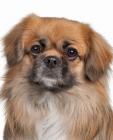
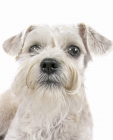
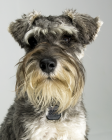

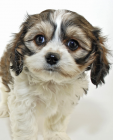
If you like Tibetan Terriers, you may like other breeds with similar characteristics »

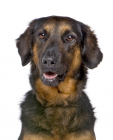
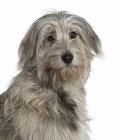
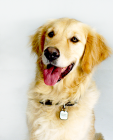
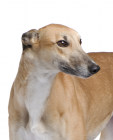
If you like Tibetan Terriers, you may be interested in these other utility dogs »


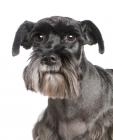
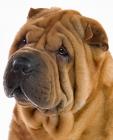

Advice on choosing your breed »
Find an animal shelter or rescue home where a Tibetan Terrier is waiting for a new home »
The following grid gives a fast track review which covers all breeds. You can apply it to help you decide if a Tibetan Terrier is suitable for you, the environment where you live, your personality and your lifestyle. On the grid, 1= strongly disagree, and 5= strongly agree. For example, if you are looking for a watch dog, look down the list under Role and Suitability, and you will see that Tibetan Terriers make excellent guard and watch dogs, scoring 5. You might like to save or print off this section and keep it for reference while you check some other breeds before making your final choice.
Be the first to rate this breed »
|
*PLEASE NOTE: All our breed profiles are general, and all dogs are individuals. Always talk to the breeders and meet the owners you are buying from. Try to meet the dog and its parents if it is a puppy in their home environment.








